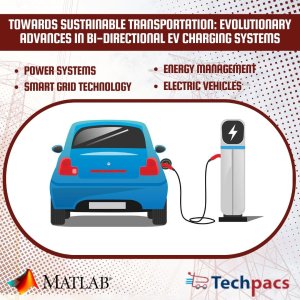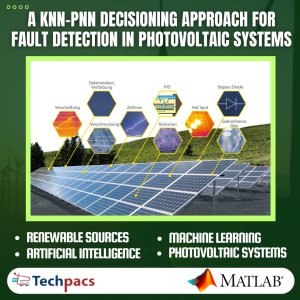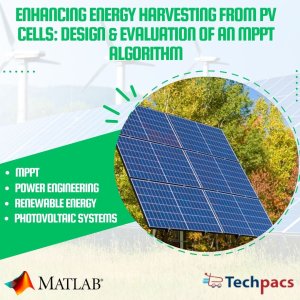Advanced Control Methods for Enhanced Renewable Energy Systems: Integrating ANFIS-MPPT Algorithm and Fuel Cell Technology
Problem Definition
The problem at hand lies in the efficiency of charging electrical appliances using solar energy through a PV array combined with an MPPT method. While the Perturb & Observe (P&O) technique has been proposed as a way to improve charging efficiency, it comes with its own set of limitations. One major drawback is that the quick decisions made by the P&O method with increasing error step sizes can actually decrease the effectiveness of MPPT. Additionally, the directional errors under rapidly changing environmental conditions can lead to inaccuracies in determining the maximum power point (MPP) of the PV array. Moreover, the existing design may not be able to charge the batteries when the PV arrays fail to capture solar energy, thus impacting overall performance.
These limitations highlight the necessity for a more effective and reliable method for solar-powered battery charging.
Objective
The objective is to develop and implement an ANFIS-based MPPT algorithm, along with a DC-DC boost converter, to enhance the charging efficiency of PV arrays for better battery charging performance. By setting a reference current limit and employing a switching module, the proposed method aims to effectively track the Maximum Power Point (MPP) and adjust the charging current to prevent battery damage. Additionally, integrating a fuel cell energy source through the switching module ensures continuous power generation even in low solar irradiance conditions. The goal is to overcome the limitations of traditional MPPT techniques and provide a reliable and optimized solution for solar-powered battery charging.
Proposed Work
In this work, the research gap identified is the need for an improved method of Maximum Power Point Tracking (MPPT) for photovoltaic systems, especially when combined with other energy sources like fuel cells. Previous literature surveys have shown the limitations of traditional MPPT techniques such as Perturb & Observe (P&O) method which cannot accurately track the Maximum Power Point (MPP) in changing environmental conditions. Therefore, the proposed work aims to design and implement an ANFIS-based MPPT algorithm to enhance the charging efficiency of PV arrays for better battery charging performance.
The proposed work involves the use of an ANFIS-based MPPT technique along with a DC-DC boost converter to control the power generated from solar panels. By setting a reference current limit and employing a switching module, the proposed method can effectively track the MPP and adjust the charging current to prevent battery damage.
The rationale behind choosing ANFIS is its adaptability to changing conditions and the ability to improve the accuracy of MPPT compared to traditional methods. Additionally, the inclusion of a switching module to integrate a fuel cell energy source provides a reliable backup for continuous power generation when solar irradiance is low. By combining these technologies, the proposed work addresses the limitations of current MPPT methods and aims to optimize the charging efficiency of PV arrays for various electrical appliances to ensure continuous and reliable power supply.
Application Area for Industry
The proposed project can be beneficially applied in various industrial sectors such as renewable energy, power electronics, and smart grid systems. In the renewable energy sector, the ANFIS-based MPPT technique can significantly enhance the efficiency of solar panels by accurately tracking the maximum power point, leading to increased energy generation. This solution can address the challenge of ineffective charging of batteries due to quickly changing environmental conditions, thereby improving the overall performance of solar-powered systems.
In the power electronics industry, the introduction of the switching module in the proposed work offers a solution to the problem of low solar irradiance affecting the output of PV arrays. By seamlessly switching to a fuel cell for charging batteries during periods of low solar energy generation, this project ensures uninterrupted power supply and efficient energy storage.
Moreover, in smart grid systems, the innovative current controlled method can optimize power generation and consumption, contributing to grid stability and sustainability. Overall, the implementation of these solutions in different industrial domains can lead to improved efficiency, reliability, and performance of energy systems.
Application Area for Academics
The proposed project can greatly enrich academic research, education, and training in the field of renewable energy and power systems. It introduces a more advanced and efficient method for Maximum Power Point Tracking (MPPT) in solar-powered battery charging systems, using an Adaptive Neuro-Fuzzy Inference System (ANFIS) approach.
This innovation can be beneficial for researchers, MTech students, and PHD scholars in the domain of renewable energy and electrical engineering. They can utilize the code and literature of this project to explore new research avenues, enhance their understanding of MPPT techniques, and develop innovative solutions for optimizing solar energy utilization.
The relevance of this project lies in its potential applications for improving charging efficiency and effectiveness models in solar-powered systems.
By addressing the drawbacks of traditional MPPT methods, such as the limitations of the Perturb & Observe approach, the proposed ANFIS-based technique offers a more accurate and adaptive solution for tracking the maximum power from solar panels.
Moreover, the incorporation of a switching module to switch control to a fuel cell during periods of low solar irradiance further enhances the system's reliability and performance. This aspect opens up avenues for exploring hybrid energy systems and integrating multiple renewable energy sources for enhanced battery charging capabilities.
In terms of future scope, researchers can delve into further optimizing the ANFIS algorithm, exploring new control strategies for the switching module, and investigating the integration of additional renewable energy sources into the charging system. Overall, this project offers a valuable platform for advancing research methodologies, simulations, and data analysis in the context of renewable energy applications.
Algorithms Used
ANFIS is an Adaptive Neuro Fuzzy Inference System algorithm used in the proposed work to enhance the efficiency and effectiveness of charging models. It is employed to improve the maximum power point tracking (MPPT) technique for tracking the maximum power from solar panels. The algorithm helps control the current generated by the solar panels, ensuring it stays below a reference limit of 14A to prevent battery damage. ANFIS also aids in implementing a switching module that switches control to a fuel cell for charging batteries when solar irradiance is low, addressing the limitations of the PV array in such conditions. By using ANFIS in combination with a DC-DC boost converter and current limiting, the charging efficiency is enhanced, and the overall charging process is made more efficient and effective.
Keywords
SEO-optimized keywords: Maximum Power Point Tracking, MPPT, Hybrid Solar Photovoltaic/Fuel Cell Energy system, Adaptive Neuro Fuzzy Inference System, ANFIS, Fuzzy Logic, Renewable energy, Energy management, Energy conversion, Energy efficiency, Energy harvesting, Photovoltaic systems, Fuel cells, Power electronics, Hybrid power systems, Hybrid energy systems, Renewable energy integration, Control system, Artificial intelligence, Solar energy, Battery charging, Charging efficiency, Perturb & Observe method, Current controlled method, DC-DC boost converter, Limiting current, Power generation, Solar panels, MPPT techniques, Adaptive systems, Solar irradiance, Switching module, Fuel cell charging.
SEO Tags
MPPT, Maximum Power Point Tracking, PV arrays, Perturb & Observe, Charging efficiency, Electrical appliances, Solar energy, P&O method, Drawbacks, Adaptive Neuro Fuzzy Inference System, ANFIS, Current controlled method, Reference current, Charging current, DC-DC boost converter, MPPT technique, Solar panels, Limiting current, Power generation, De-Rating operation, Solar irradiance, Switching module, Fuel cell, Hybrid energy system, Renewable energy, Energy management, Fuzzy Logic, Energy efficiency, Photovoltaic systems, Power electronics, Control system, Artificial intelligence
| Shipping Cost |
|
No reviews found!

















































No comments found for this product. Be the first to comment!